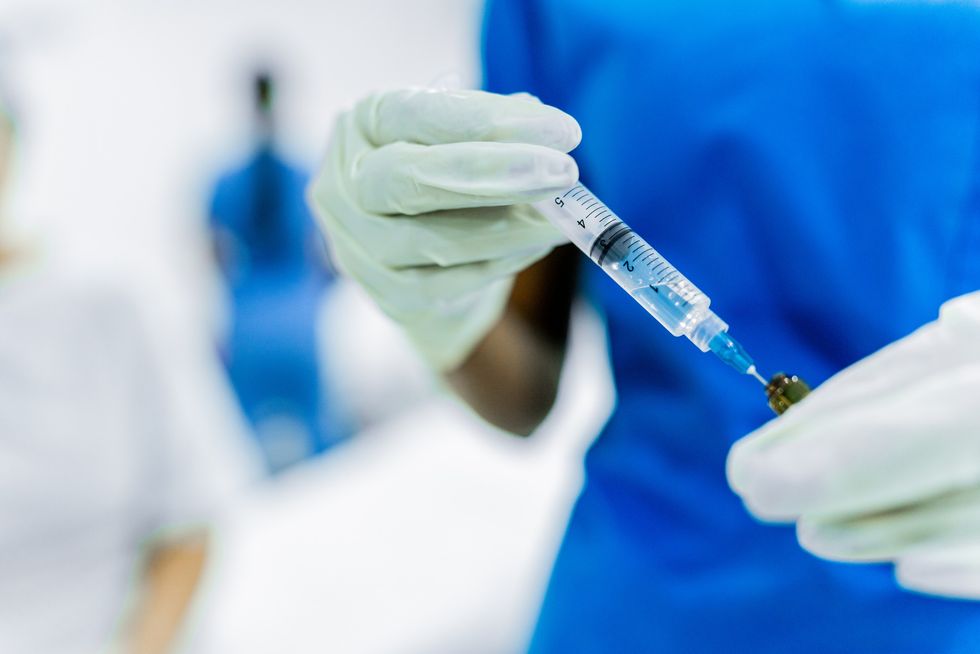WATCH: Dr Laurence Buckman - 'It has to be a health service not a sick service'
GB News
The new treatment offers hope for those who haven't responded to conventional therapies
Don't Miss
Most Read
Trending on GB News
A groundbreaking new treatment could help millions of people with arthritis in the knee avoid surgery, according to a major study.
The minimally invasive procedure, called genicular artery embolisation (GAE), has shown significant success in reducing pain and improving quality of life for patients with osteoarthritis.
The research, conducted at Berlin's Charity University Hospital, analysed 403 cases of patients aged 40 to 90 with moderate to severe knee osteoarthritis.
The treatment offers hope for those who haven't responded to conventional therapies, with benefits lasting more than a year after the procedure.

A groundbreaking new treatment could help millions of people with arthritis in the knee avoid surgery, according to a major study (stock image)
Getty
According to the World Health Organisation, knee osteoarthritis is the leading chronic joint disorder, affecting more than 365 million adults worldwide.
Current available treatments, including pain medication and steroid injections, only mask the symptoms of the condition.
These therapies fail to slow the progression of osteoarthritis, leaving many patients with no choice but to turn to joint replacement surgery as their condition deteriorates.
GAE works by targeting the network of genicular arteries that surround the knee joint, which become altered in osteoarthritis patients.
During the procedure, an interventional radiologist injects small particles into specific branches of these arteries that correspond to where the knee pain occurs.
The treatment blocks blood flow to the painful area, disrupting the cycle of inflammation that characterises osteoarthritis.
This innovative approach helps reduce cartilage destruction and abnormal sensory nerve growth that contribute to the condition's progression.
The results showed an impressive 87 per cent improvement in quality-of-life scores one year after treatment.
Pain scores also improved significantly, with a 71 per cent reduction reported after 12 months.
Only mild side effects were observed, with 18 per cent of patients experiencing temporary skin discolouration and mild knee pain immediately following the procedure.
No severe complications were reported throughout the study, which tracked patients through multiple follow-ups at six weeks, three months, six months, and one year.

The research, conducted at Berlin's Charity University Hospital, analysed 403 cases of patients aged 40 to 90 with moderate to severe knee osteoarthritis
Getty ImagesStudy lead author Doctor Florian Fleckenstein emphasised the treatment's broad potential impact.
"Our study found that GAE can effectively reduce knee pain and improve quality of life early after the treatment, with these benefits being maintained over the long term," he said.
The research revealed GAE is particularly effective when used in early stages of knee osteoarthritis.
"GAE has the potential to reduce the need for more invasive surgeries, lower health care costs and significantly improve the quality of life for countless individuals suffering from knee osteoarthritis," Fleckenstein added.
The findings were presented at the annual meeting of the Radiological Society of North America in Chicago.








